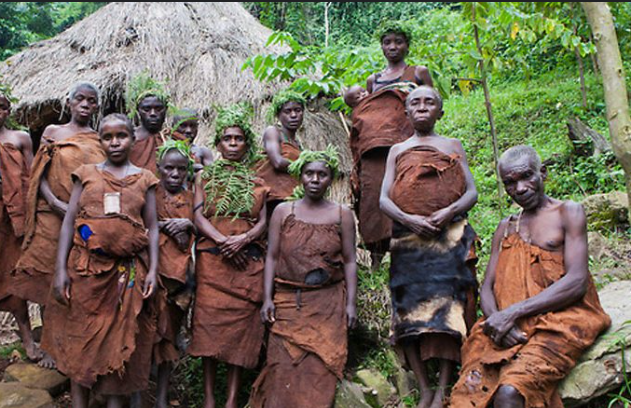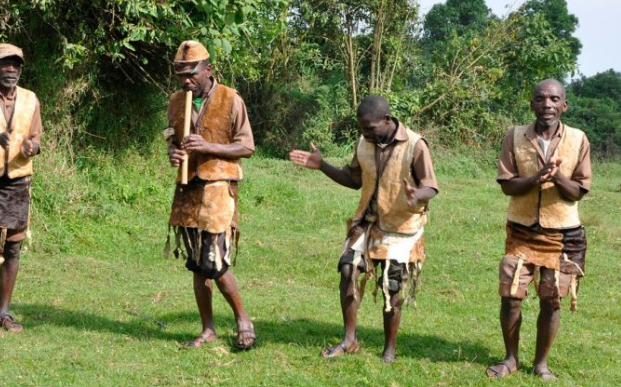The Rich and Resilient Batwa Culture in Uganda
The Batwa culture in Uganda is one of the most unique and fascinating cultural identities in East Africa. Often referred to as the “forest people” or “pygmies,” the Batwa were among the earliest inhabitants of the Great Lakes region. For centuries, they thrived as hunter-gatherers in the thick tropical forests, particularly around the Bwindi Impenetrable and Mgahinga forests. Their culture reflects deep connections with nature, spirituality, and community living. Despite facing historical challenges, displacement, and marginalization, the Batwa people continue to preserve their traditions and identity.
This article explores the Batwa’s origin, traditional leadership, marriage customs, ways of cooking, naming, dressing, and living, while highlighting their unique language and cultural resilience.
How the Batwa Started
The Batwa are believed to be one of the oldest indigenous groups in Uganda, dating back thousands of years. Their history is closely linked with the Central African rainforests, where they relied on hunting, gathering, and small-scale farming for survival. Unlike most ethnic groups in Uganda that are predominantly agricultural, the Batwa’s identity was rooted in forest life.
Traditionally, they lived in temporary grass-thatched huts, often moving to follow hunting trails and seasonal harvests of wild fruits, roots, and honey. The Batwa viewed the forest as both home and sacred sanctuary, providing food, medicine, and spiritual meaning. However, during the 1990s, when Uganda’s government gazetted Bwindi and Mgahinga as national parks to conserve endangered gorillas, the Batwa were displaced without compensation. This loss of ancestral land reshaped their cultural practices, though many traditions have survived.

Traditional Leadership Among the Batwa
Leadership within Batwa communities has historically been informal and community-centered. Unlike centralized kingdoms, Batwa groups were smaller, with decision-making often resting in the hands of elders. These elders were respected for their wisdom, knowledge of the forest, and experience in survival skills.
Clan leaders played significant roles in guiding hunting expeditions, resolving disputes, and maintaining spiritual rituals. Their authority was not enforced through power but through consensus and respect. Even today, despite modern pressures, Batwa elders remain cultural custodians, passing oral traditions, folklore, and ethical values to younger generations.
Behaviour and Social Conduct
The Batwa people are known for their communal way of life, rooted in sharing and cooperation. In traditional settings, food, resources, and shelter were rarely owned individually but shared collectively. This culture of generosity fostered unity and strengthened survival in the forest.
Respect for elders, harmony within families, and mutual support are key aspects of Batwa behaviour. Traditionally, quarrels were resolved through dialogue rather than confrontation, with elders mediating disputes. Even though many Batwa now live in resettlement villages, their values of humility, cooperation, and hospitality remain visible in their interactions.
Marriage Customs
Marriage among the Batwa is viewed as both a personal and communal affair. In earlier times, marriages were often arranged within the community to strengthen bonds. Bride price was symbolic rather than materialistic, usually involving small gifts such as meat, honey, or forest produce.
Batwa weddings were simple, with ceremonies marked by singing, dancing, and storytelling. The community participated in celebrations, symbolizing unity and support for the new couple. Polygamy was rare among the Batwa compared to other ethnic groups in Uganda, largely due to their small population and communal living style.
Today, some Batwa marriages have adapted to modern influences, but elements such as music, dance, and community blessings continue to play vital roles in marital traditions.
Way of Cooking
Food in Batwa culture traditionally came directly from the forest. They hunted small animals, gathered wild yams, mushrooms, and fruits, and collected honey, which was highly valued. Cooking was simple, involving roasting meat on open fires or boiling roots and tubers in clay pots.
With displacement from the forest, their diet has shifted toward cultivated crops such as beans, maize, and sweet potatoes. Still, some Batwa families preserve old cooking techniques by preparing smoked or roasted dishes, echoing their forest heritage. Honey remains not only a food source but also a cultural delicacy, often used in rituals and community feasts.
Way of Naming
Naming within Batwa culture carries deep meaning, often inspired by nature, circumstances of birth, or significant events. A child could be named after a forest element, such as a tree, animal, or fruit, symbolizing the people’s strong bond with their environment. Names were also chosen to reflect personal traits, hopes, or spiritual protection.
For instance, some names were given based on the time of day a child was born, the season, or a special family experience. These names were more than identifiers; they carried stories, identity, and cultural pride. Even today, Batwa names remain an essential part of preserving their cultural uniqueness.
Way of Dressing
Historically, the Batwa dressed in clothes made from animal skins and bark cloth, reflecting their close connection to the forest. Women often wore skirts made from tree bark softened and treated to make them wearable, while men used animal hides for clothing and hunting gear.
Ornaments such as beads, shells, and feathers were used for decoration during ceremonies and dances. Dressing was not only functional but symbolic, often associated with rituals and cultural identity. In contemporary times, most Batwa wear modern clothes due to social integration and poverty challenges, but traditional attire is still displayed during cultural events to showcase heritage.

Way of Living
The Batwa way of living was traditionally nomadic. Small family groups built temporary huts made of sticks, leaves, and grass. These huts could easily be dismantled as they moved to new hunting grounds. The community’s livelihood depended heavily on forest resources, which provided food, medicine, and shelter.
Spiritual beliefs also shaped their lifestyle. The Batwa revered the forest as sacred, believing it was home to ancestral spirits and divine forces. Rituals, dances, and songs were performed to honor these spirits, especially before hunting or harvesting.
Today, their way of living has drastically changed due to displacement. Many now reside in permanent villages, often struggling with poverty, limited land, and a lack of access to education. Despite these challenges, they continue to express resilience through cultural preservation and storytelling.
Language of the Batwa
The Batwa speak languages related to their neighboring communities, particularly Rukiga, Rutoro, and other Bantu dialects. Historically, they had their own distinct dialects, but due to intermarriage and displacement, many Batwa have adopted the languages of the regions where they resettled.
Oral tradition remains central to their language practice. Folktales, proverbs, and songs passed down through generations serve as cultural education for children. Through storytelling, they preserve their history, moral values, and worldview. Efforts are now being made by cultural organizations to document and revive elements of their original language heritage.
The Batwa culture in Uganda reflects a unique story of resilience, identity, and adaptation. From their beginnings as forest dwellers to their current struggles and triumphs, the Batwa continue to hold onto their traditions while navigating modern challenges. Their leadership systems, marriage customs, cooking methods, naming practices, dressing, lifestyle, and language all reveal a deep cultural richness.

